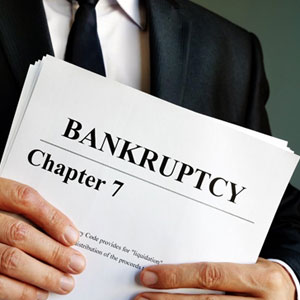Chapter 7 Bankruptcies remain one of the most impactful and effective ways of dealing with overwhelming personal debt. Texans across the state consider and file each year for the relief it can offer, but how does it work, and who can qualify? In this article, you will find the key essential information you need to know about Chapter 7 bankruptcy, including:
- What the means test for Chapter 7 Bankruptcy is, and how to qualify.
- The protections offered against creditors just by filing for Chapter 7 Bankruptcy.
- The role of trustees and creditors during the bankruptcy process in Texas.
The first and perhaps most pressing of questions for most Texans struggling with debt is generally: do I qualify for Chapter 7 bankruptcy? The debt relief offered is considerable, with many kinds of debt being simply erased, but qualifying is not always easy. First and foremost, you must meet the means test.
What Is The Means Test In Chapter 7 Bankruptcy?
The means test is a test that determines an individual’s eligibility to file for Chapter 7 bankruptcy in Texas. It is based on your disposable income, which means the amount that is left over after you pay your regular monthly living expenses. However, if your income is below the Median Family Income, you are automatically eligible.
If you are earning too much income for Chapter 7, you will usually still be able to qualify for debt relief in the form of Chapter 13 bankruptcy, which has the added addition of protecting your assets.
Finally, some Texans will be exempt from the means test, such as disabled veterans or individuals whose debt is not primarily consumer debt.
Those who qualify will be able to pass on to the next stages, notably, the 341 meeting of creditors.
What Is The 341 Meeting Of Creditors?
The 341 meeting of creditors is a meeting that’s required by the bankruptcy code to give creditors and the trustee who is appointed to the case the opportunity to ask the debtor questions under oath about his or her finances, debts, income, and property.
This is more than just a formality. These answers are binding and if you are found to have lied, deceived, or even just made mistakes in your answers, it could cost you your chance at some or all of the debt relief you need. It is best to prepare for this meeting with a bankruptcy attorney.
Could I Have Too Much Debt To Qualify For A Chapter 7 Bankruptcy?
Texans struggling with debt do not always realize it, but there is no amount of debt too big for bankruptcy. In fact, the more debt you have, the lower your alternatives are, the more bankruptcy makes sense as a way out.
Chapter 7 provides the most drastic and effective debt relief, and it also comes with other significant advantages, notably a stay on creditors.
Will Filling For Chapter 7 Bankruptcy Stop Creditors’ Harassment Including Phone Calls And Letters?
One of the most immediate forms of relief offered by filing for bankruptcy is the Automatic Bankruptcy Stay order. This immediately puts an end to creditors’ reclamations, as well as any attempts to seize your property or assets.
This means that all types of creditor harassment, including letters and phone calls, have to stop by virtue of the automatic stay. The stay acts like a court injunction that prevents any creditors from taking any type of action against you or your property. For instance, the Automatic Stay will stop the repossession of your vehicle or the foreclosure of your home.
In addition, if you have a bankruptcy attorney (which you really should) you can have all future communication from creditors go through them. No more contact of any kind will be required with your creditors.
Will Chapter 7 Bankruptcy Stop Wage Garnishment?
Another common concern by Texans who are having their wages lowered each month by creditor garnishing is whether or not Chapter 7 bankruptcy will put an end to wage garnishment. Fortunately, the answer is yes.
Due to the automatic stay, among other forms of reclamation and harassment, wage garnering is forbidden to creditors against bankruptcy claimants in Texas.
What Is A Bankruptcy Trustee?
In Chapter 7 bankruptcies, a trustee is appointed by the clerk’s office to preside over the meeting of creditors and to investigate your assets to determine if there are any which are not exempt under Texas law or Federal law from creditor collection efforts.
Those that are not found to be exempt may be sold or liquidated, and the proceeds used to pay creditors. A process that the trustee is also in charge of. For most individuals in Texas, their home, vehicles, household furnishings and retirement plan are exempt, so they get to keep those items.
Can A Creditor Object To My Debt’s Discharge In A Chapter 7 Bankruptcy?
Most, if not all, of your debt will be discharged at the end of the Chapter 7 bankruptcy process. This means the debts will be legally forgiven. The creditors will take a loss, but they generally don’t have much of a choice.
Creditors can try to object to a specific debt’s discharge, but the grounds for objecting are very limited. In most cases, they will have to show that you committed fraud or filed a false financial statement if they don’t want the debt to be discharged.
Working with a bankruptcy attorney before and during the process will help avoid the kinds of mistakes creditors might be able to exploit to make such objections, as well as improve your ability to contest them if they do. For more information on FAQs In Chapter 7 Bankruptcy In Texas, an initial consultation is your next best step.

Get Your Questions Answered - Call Me
For Your Free, Phone Consultation
(210) 761-5002
